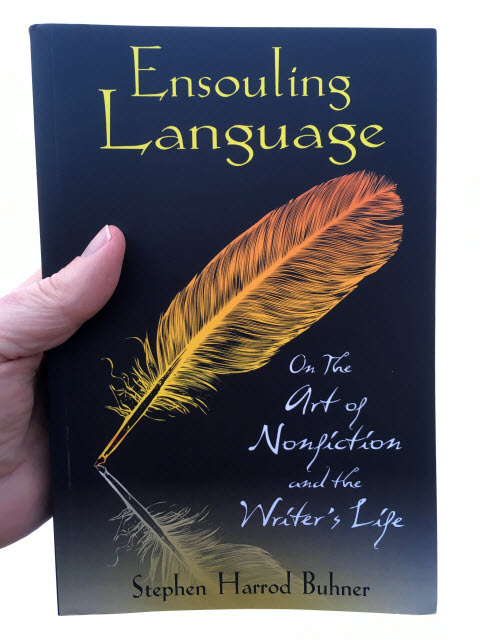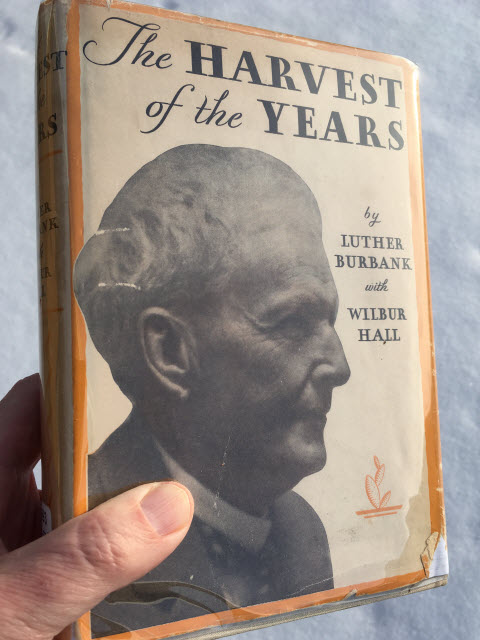This is a post in my series on organizing ”between and beyond.” Other posts are here. This is a retrospective of what has happened during the week. The purpose is to reflect on the work itself. Here is my previous retrospective. Here is my next retrospective.
What has happened? What needs to be done?
This is a retrospective, not of what happened last week, but of what has happened during the last month.
The following books arrived this month:
- The Epochal Nature of Process in Whitehead’s Metaphysics by F. Bradford Wallack.
 F. Bradford Wallack tries to gradually elucidate Whithead’s theory throughout this book, introducing Whitheadian ideas one at a time. Two world-views, materialism and organism, are contrasted throughout book.1 Each chapter is provided with both an introduction and a conclusion, all of which taken together summarize this book. One of Wallack’s conclusions is that there is no way to conclusively prove a particular interpretation of Whithead’s philosophy, since it contains enough ambiguous statements to satisfy opposing theories.2 I still have to read the book.
F. Bradford Wallack tries to gradually elucidate Whithead’s theory throughout this book, introducing Whitheadian ideas one at a time. Two world-views, materialism and organism, are contrasted throughout book.1 Each chapter is provided with both an introduction and a conclusion, all of which taken together summarize this book. One of Wallack’s conclusions is that there is no way to conclusively prove a particular interpretation of Whithead’s philosophy, since it contains enough ambiguous statements to satisfy opposing theories.2 I still have to read the book. - Voltaire’s Bastards by John Ralston Saul.
 John Ralston Saul writes that “rational elites” have turned West into a vast directionless machine, run by process-minded experts—”Voltaire’s Bastards”—whose cult is scientific management. He wonders why a Western white- or blue-collar worker should be interested in loyalty, participation and teamwork when the units they work for are disposed of by management or speculators with an indifference reminiscent of the slave trade. The void in society has to do with the absence of intrinsic values.
John Ralston Saul writes that “rational elites” have turned West into a vast directionless machine, run by process-minded experts—”Voltaire’s Bastards”—whose cult is scientific management. He wonders why a Western white- or blue-collar worker should be interested in loyalty, participation and teamwork when the units they work for are disposed of by management or speculators with an indifference reminiscent of the slave trade. The void in society has to do with the absence of intrinsic values.
John Ralston Saul thinks that West has mistaken management techniques for moral values. “The rational advocacy of efficiency more often than not produces inefficiency. It concentrates on how things are done and loses track of why. It measures specific costs without understanding real costs.”3 Doing away with themselves is not among the options considered by management. When people have a clear belief in the purpose of an organization, they find a sensible way to run it by themselves.4 It’s a well written and though provoking book! - Ensouling Language by Stephen Harrod Buhner.
 This book is written for those who have fallen in love with the luminous power of language.5 “Trust that the things you feel, that insists they be said, are there inside you, pushing on you, for a reason. Trust that there are people out there that need to hear those things, just as much as you need to say them.”6 There is something more at the heart of any craft than the mechanics of it. We have forgotten something essential about our humanness. “Feeling is the key to deep meaning.”7 I am currently reading the book.
This book is written for those who have fallen in love with the luminous power of language.5 “Trust that the things you feel, that insists they be said, are there inside you, pushing on you, for a reason. Trust that there are people out there that need to hear those things, just as much as you need to say them.”6 There is something more at the heart of any craft than the mechanics of it. We have forgotten something essential about our humanness. “Feeling is the key to deep meaning.”7 I am currently reading the book. - Generative Scribing by Kelvy Bird.
 Generative scribing is a visual practice, in the moment, for social seeing. Kelvy Bird describes it as: “We draw while people talk.” And in that “while” are “Be” (bring your authentic self forward), “Join” (engage across boundaries), “Perceive” (notice with a broad view), “Know” (discern coherence to inform choice), and “Draw” (give form to content).8 Generative scribes “seek to represent what is beyond image that characterize inner life or the literally spoken word.”9 “Fields […] inform form.”10 Kelvy Bird’s writing and drawing resonates deeply with me. This is the kind of book you don’t stop reading. I will write a book review.
Generative scribing is a visual practice, in the moment, for social seeing. Kelvy Bird describes it as: “We draw while people talk.” And in that “while” are “Be” (bring your authentic self forward), “Join” (engage across boundaries), “Perceive” (notice with a broad view), “Know” (discern coherence to inform choice), and “Draw” (give form to content).8 Generative scribes “seek to represent what is beyond image that characterize inner life or the literally spoken word.”9 “Fields […] inform form.”10 Kelvy Bird’s writing and drawing resonates deeply with me. This is the kind of book you don’t stop reading. I will write a book review. - The Harvest of the Years by Luther Burbank with Wilbur Hall.
 Luther Burbank made innumerable and unique experiments with plants. He had an intimate friendship with them. Burbank’s thoughts, reactions, observations, and philosophies are stored in this book thanks to Wilbur Hall.11 I am currently reading this book.
Luther Burbank made innumerable and unique experiments with plants. He had an intimate friendship with them. Burbank’s thoughts, reactions, observations, and philosophies are stored in this book thanks to Wilbur Hall.11 I am currently reading this book. - The Bushman Way of Tracking God by Bedford Keeney.
 Bradford Keeney shares the oldest teachings every given for how we can find meaning, purpose, and joy in life.12 What it requires is our fullest humanness and a sincere desire to be willing, able, and ready to be moved by life itself.13 We have thousands of years of accumulated knowledge and wisdom in this ancestral culture that was utilized before other cultures were born. “It is no accident that the Australian Aboriginal people speak of songlines, for the Bushmen also say that their songs are the lines.”14 I am currently reading this book and will write a book review.
Bradford Keeney shares the oldest teachings every given for how we can find meaning, purpose, and joy in life.12 What it requires is our fullest humanness and a sincere desire to be willing, able, and ready to be moved by life itself.13 We have thousands of years of accumulated knowledge and wisdom in this ancestral culture that was utilized before other cultures were born. “It is no accident that the Australian Aboriginal people speak of songlines, for the Bushmen also say that their songs are the lines.”14 I am currently reading this book and will write a book review.
What was good? What can be improved?
It was good that I finally got this retrospective written. However, it would be better if I can get back into my habit of writing weekly retrospectives. I am doing this work in my spare time and would like to spend more time on it than I actually can.
Notes:
1 F. Bradford Wallack, The Epochal Nature of Process in Whitehead’s Metaphysics (State University of New York Press,
1980), pp. 4–5.
2 Ibid., p. 199.
3 John Ralston Saul, Voltaire’s Bastards: The Dictatorship of Reason in the West (Simon & Schuster Paperbacks, 2013, first published 1992), p. 582.
4 Ibid., pp. 234, 266.
5 Stephen Harrod Buhner, Ensouling Language: On The Art of Nonfiction and the Writer’s Life (Inner Traditions, 2010), p. xv.
6 Ibid., p. 15.
7 Ibid., p. 38.
8 Kelvy Bird, Generative Scribing: A Social Art of the 21st Century (Presencing Institute Press, 2018), p. 13.
9 Ibid., p. 42.
10 Ibid..
11 Luther Burbank with Wilbur Hall, The Harvest of the Years (Houghton Mifflin Company, 1927), p. ix.
12 Bradford Keeney, The Bushman Way of Tracking God (Atria Books, 2010), p. xxi.
13 Ibid., p. xxiii.
14 Ibid., p. 112.
Related posts:
Organizing in between and beyond posts
Leave a Reply
You must be logged in to post a comment.